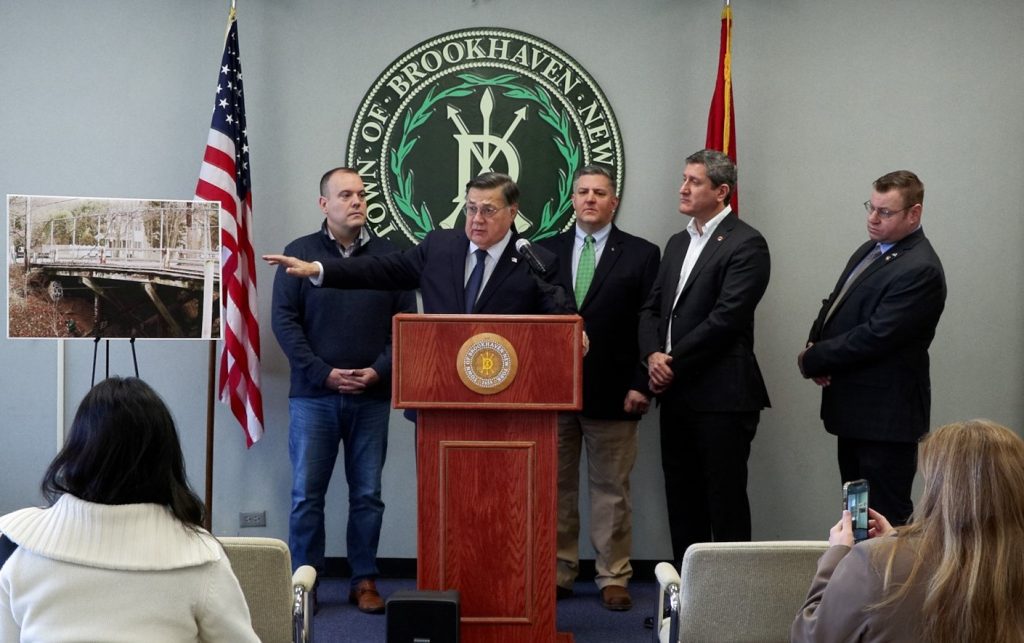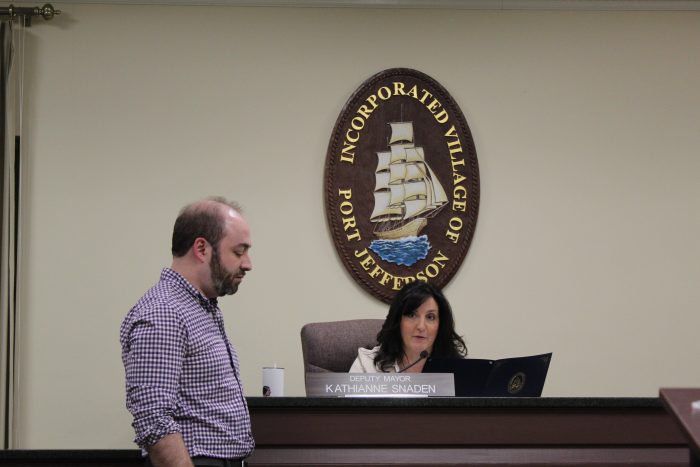William “Doc” Spencer, who served as a Democratic Suffolk County legislator for the 18th District, was released from jail after serving six months for tampering with records and prostitution-related charges. He is now required to complete community service.
Spencer, who was arrested in October 2020 and indicted Nov. 8, 2021, pleaded not guilty at his arraignment. However, at his trial he pleaded guilty to reduced charges, lessening his jail time to six months with an additional 500 hours of community service to complete his sentence, according to his attorney Anthony LaPinta of Hauppauge.
Authorities had arranged a sting operation in 2020, and the Centerport resident allegedly planned, via text message, to meet a prostitute, who was an undercover agent, in the parking lot behind the Goodwill store in Elwood to trade sex for the pills, according to police. Unknown to Spencer, the sex worker had been dead for a few months, and law enforcement officers had accessed her phone. He encountered police officers upon arrival and was allegedly found with two oxycodone pills, a legal form of opioid, in his possession.
The then-county legislator was also facing charges for allegedly filing false information in a police report. Tim Sini (D) was Suffolk County district attorney at the time.
“Following his arrest, my office conducted an extensive, thorough investigation in collaboration with our law enforcement partners, which resulted in this grand jury indictment,” Sini said in a statement in 2021. “Investigators found that multiple women had allegedly been paid in either cash or drugs for sex acts with the defendant over the course of several years, as corroborated by text message exchanges and other evidence.”
According to Sini’s office, in July 2020, Spencer filed a complaint with the Suffolk County Police Department. In the complaint, he said he had been the victim of an extortion scheme. In a written statement to detectives, he said, “I have not sought the services of prostitutes or call girls.”
The original charges included criminal possession of a controlled substance in the third degree; criminal sale of a controlled substance in the third degree; tampering with public records in the first degree; falsifying business records in the first degree; offering a false instrument for filing in the first degree; perjury in the second degree; making an apparently sworn false statement in the first degree; patronizing a person for prostitution in the third degree; and attempted patronizing a person for prostitution in the third degree.
Spencer was a county legislator for nearly 10 years and was Democratic majority leader and chairman of the legislative health committee. He did not resign from his seat after the arrest but chose not to run again in 2021. Stephanie Bontempi (R-Centerport) and former Town of Huntington Councilman Mark Cuthbertson (D-Northport) vied for the seat, with Bontempi winning the district.
Spencer, an ordained minister, was also a physician who operated a private medical practice in Huntington and was chief of otolaryngology at Huntington Hospital. His medical license was suspended after his 2020 arrest.



















